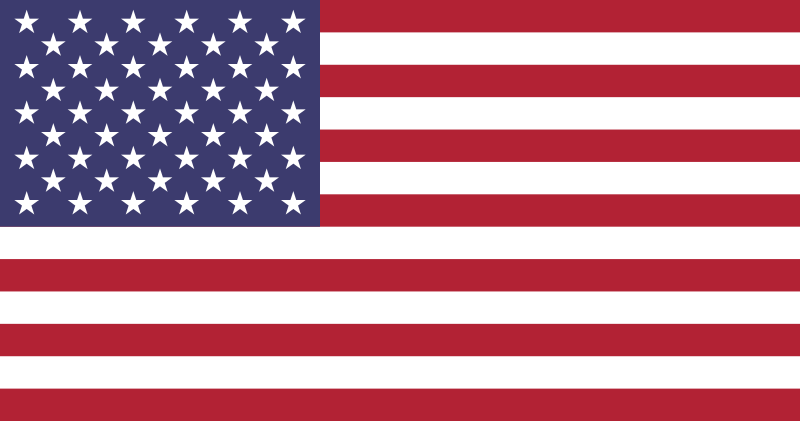Makeup Tools
Investing in Quality Makeup Brushes: Pro Tips & Picks
Table of Contents
Introduction
In the beauty world, the right tools can completely transform the way makeup looks and lasts. Investing in quality makeup brushes isn’t just for professional artists, it’s one of the smartest choices anyone can make to achieve flawless, long-lasting results. Whether you’re drawn to the best makeup brush sets for beginners or prefer to handpick professional makeup brushes for your kit, understanding what makes a brush worth the price is key (Allure, 2023).
This guide will walk you through the real benefits of using durable makeup brushes, explain how to choose makeup brushes that fit your needs, and share expert tips for spotting fakes. You’ll learn that quality doesn’t always mean the most expensive option, it’s about finding the right balance of performance, comfort, and value. By the end, you’ll know exactly what to look for so your brushes not only apply makeup beautifully but also stand the test of time.
Benefits of Investing in Quality Makeup Brushes
Using quality makeup brushes is one of the easiest ways to improve your overall makeup application. The difference between an average brush and a professional-grade tool is often visible in the finish, blend, and longevity of your makeup.
First, best makeup brush sets are designed to provide a consistent, even application. The bristles, whether natural or synthetic, are cut and shaped with precision to pick up just the right amount of product, reducing waste. When paired with professional makeup brushes, you’ll notice smoother blending, sharper definition, and fewer patchy spots, especially with tricky formulas like cream contour or shimmery eyeshadow (Byrdie, 2022).
Another major advantage is durability. Durable makeup brushes hold their shape and softness even after repeated washing, meaning you won’t be replacing them every few months. This not only saves money in the long run but also ensures that your makeup routine remains consistent.
Lastly, learning how to choose makeup brushes tailored to your preferred products and techniques can elevate your skills. For example, a dense, flat foundation brush is perfect for full coverage, while a fluffy tapered brush helps diffuse powder seamlessly. When your tools are reliable and suited to the job, the entire process becomes faster, more precise, and more enjoyable.
How to Choose Makeup Brushes
Knowing how to choose makeup brushes can make the difference between a flawless finish and a streaky, uneven look. Start by considering the products you use most often. For liquid foundation or cream blush, liquid makeup application tools such as flat synthetic brushes or high-density kabuki brushes ensure smooth coverage without soaking up too much product (Makeup.com, 2023).
When working with powders, the best makeup brushes for powder are those with soft, loosely packed bristles. These allow for light, buildable application, perfect for setting your makeup or applying bronzer. A fluffy, domed powder brush distributes pigment evenly and prevents harsh lines, creating a professional-grade finish.
If you prefer cream-based formulas, you’ll need tools for cream makeup with firmer, shorter bristles that can buff product into the skin without streaking. These brushes give you control over placement while blending seamlessly.
It’s also worth comparing a makeup sponge vs brush for certain tasks. While brushes offer precision and control, sponges excel at giving a soft, airbrushed finish, especially for concealer or sheer foundation. Knowing when to reach for each tool is key to an efficient and effective routine.
Finally, no matter what type of brush you choose, maintaining them is essential. Learning how to clean makeup toolswill keep bristles soft, bacteria-free, and performing at their best. Clean brushes not only extend the life of your tools but also protect your skin from breakouts caused by product buildup.
Caring for and Maintaining Your Brushes
Once you’ve mastered how to choose makeup brushes, the next step is keeping them in excellent condition. Proper care ensures they last longer, maintain their shape, and continue delivering a flawless finish.
First, understand the importance of how to clean makeup tools. Dirty brushes can harbor bacteria, oil, and leftover pigment, which can cause skin irritation and breakouts (American Academy of Dermatology, 2022). For tools for cream makeup, cleaning is especially important because thicker products cling to bristles and can harden if not washed regularly. Use a gentle brush cleanser or mild soap, and rinse until the water runs clear.
When it comes to liquid makeup application tools, cleaning after every use is ideal. This prevents foundation and concealer from building up and affecting performance. For the best makeup brushes for powder, a deep clean every one to two weeks is usually enough, but you should still tap off excess powder after each use.
The makeup sponge vs brush debate often includes hygiene considerations, sponges need even more frequent cleaning, sometimes daily, to prevent product buildup in their porous material.
Finally, proper storage is key. Keep your brushes upright in a holder or case to protect their shape and prevent dust from settling on them. Whether you own a few essentials or a large collection of tools for cream makeup and powder products, regular care will keep them performing beautifully for years.
Comparing Different Makeup Application Tools
When it comes to achieving a flawless look, understanding the strengths of different makeup application tools can help you choose the right method for every product and occasion.
The makeup sponge vs brush debate is one of the most common in the beauty world. Brushes, particularly the best makeup brushes for powder, provide a smooth, even finish and allow for precise blending. They work exceptionally well with loose or pressed powders, bronzers, and blushes. On the other hand, sponges excel with liquid and cream products, offering a natural, airbrushed look when damp (Cosmopolitan, 2022). However, they require more frequent cleaning to stay hygienic.
For tools for cream makeup, dense, synthetic brushes or firm sponges are ideal, as they help blend thicker products without streaks. Meanwhile, liquid makeup application tools, like flat foundation brushes or teardrop-shaped sponges, are designed to spread product evenly and reach tricky areas around the nose and eyes.
Ultimately, the right choice depends on personal preference, skin type, and the product being used. Many makeup enthusiasts keep both brushes and sponges in their collection, allowing them to switch between methods for different finishes. Whichever you choose, knowing how to clean makeup tools regularly ensures optimal performance and skin health.
Finally: Choosing the Best Tools for Your Makeup Routine
Finding the right tools for applying makeup can transform not only the application process but also the final look. Whether you prefer the precision of the best makeup brushes for powder, the smooth finish from tools for cream makeup, or the effortless blending of liquid makeup application tools, each serves a distinct purpose in your beauty routine. The makeup sponge vs brush choice ultimately depends on your desired finish, product type, and personal comfort level.
Regardless of the tools you select, one habit remains essential: knowing how to clean makeup tools effectively. Regular cleaning maintains tool quality, prevents product buildup, and keeps your skin healthy. By understanding and combining the right tools for each product, you can achieve flawless results every time, and make your beauty routine both enjoyable and effective (Sephora Beauty Insider, 2023).
FAQs – Investing in Quality Makeup Brushes: Pro Tips & Picks
How often should I replace my makeup brushes?
With proper care, quality makeup brushes can last for several years. However, you should replace them when you notice signs of wear, such as shedding bristles, loss of shape, or a decline in performance.
Are expensive makeup brushes really worth the investment?
Yes, expensive makeup brushes often provide superior quality due to their high-grade materials, construction, and performance. However, it’s essential to do your homework to ensure that the higher price translates to real value. Higher costs don’t always guarantee better quality. To ensure you get value for your money, research the brush’s reputation, read reviews, and compare features before making a purchase.
How can I tell if my brush is made from natural or synthetic bristles?
Natural bristles typically feel softer and more porous, while synthetic bristles are smooth and uniform. Brands often specify the material used, so check the packaging or product description.
What is the best way to clean my makeup brushes?
Use a gentle brush cleanser, baby shampoo or mild soap with lukewarm water. Swirl the bristles in the cleanser, rinse thoroughly, and reshape them before laying the brushes flat to dry.
How can I spot a counterfeit makeup brush?
Look for signs such as unusually low prices, inconsistent packaging, poor construction, and purchase from reputable retailers. Research and reviews can also help identify counterfeit products.
This comprehensive guide provides insights into the importance of investing in quality makeup brushes, how to differentiate them from low quality alternatives, and how to care for them to ensure they last. By understanding these aspects, you can make informed decisions and elevate your makeup application experience.
References
Allure. (2023, March 15). The best makeup brushes for every budget and skill level. https://www.allure.com/gallery/best-makeup-brushes
Byrdie. (2022, September 22). The 12 best makeup brush sets for flawless application. https://www.byrdie.com/best-makeup-brush-sets-4691192
Makeup.com. (2023, February 10). How to choose the right makeup brush for your product. https://www.makeup.com/makeup/makeup-tips/how-to-choose-a-makeup-brush
American Academy of Dermatology. (2022, July 14). How to clean your makeup brushes. https://www.aad.org/public/everyday-care/skin-care-basics/makeup/clean-makeup-brushes
Cosmopolitan. (2022, June 9). Makeup brushes vs sponges: Which one should you use?. https://www.cosmopolitan.com/style-beauty/beauty/a40150294/makeup-brushes-vs-sponges/
Sephora Beauty Insider. (2023, May 4). The ultimate guide to makeup tools and accessories. https://www.sephora.com/beauty/makeup-tools-guide


